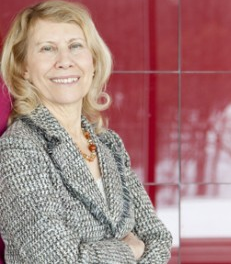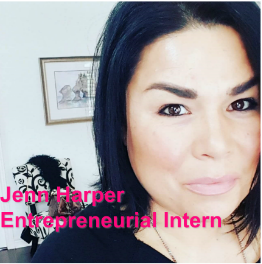Clare Berckon
Last summer, as part of our study to ascertain how women entrepreneurs look at risk, we crossed Canada asking entrepreneurs about their approach to risk in their businesses. We wanted to test the oft quoted assumption that female entrepreneurs are risk averse. As we spoke to predominately female entrepreneurs across all sectors and cultures, we heard stories of challenge, opportunity, achievement and resilience in the face of obstacles. We were touched and inspired by their willingness to share deepest aspirations, personal stories, successes and failures. Beyond hearing about approaches to risk, we learned how women entrepreneurs shape their businesses including the importance of relationships.
Describing female entrepreneurs as risk averse, assumes they are a homogeneous group making it potentially more difficult to obtain funding, and creating stereotypes that influence both men and women. In fact, women starting and growing businesses come from diverse backgrounds and have a broad range of goals and businesses across all sectors in all parts of Canada. They are not a homogeneous group. Women entrepreneurs make significant contributions to the Canadian economy. They are ambitious and do want to grow their businesses. Some told us how they controlled growth to ensure sustainability and others to be able to integrate other priorities in their lives. Growth was slower for some because they could not get external funding thereby having to bootstrap on their business revenues to grow.
Women entrepreneurs do make risk-related decisions to grow their businesses and achieve their goals. With success and experience, their confidence grows and making decisions becomes easier. A number described their approach as risk rational meaning they carefully examined the facts and the impacts of the decision for their business, employees and sometimes family. Some said failure was not an option because they had a family to support, so simply made the decisions necessary to achieve success.
One of our findings is that mentors can be very beneficial in helping entrepreneurs both start and grow their businesses. Some common mistakes can be avoided because of the mentors knowledge and experience. Mentors can accelerate the acquisition of good business knowledge and instill confidence in the entrepreneurs ability to move forward. A member of the family with business experience might be a mentor, or another entrepreneur with more experience who is willing to help or, someone who is part of a formal mentoring program offered by a number of organizations. Mentors do not have to be female or even from the same culture. There are benefits to cross cultural mentoring if there is a desire to serve broader markets. In addition, the mentor will obtain the benefit of learning about another culture. A number of female entrepreneurs spoke about male mentors including a father or uncle or friend.
Some organizations such as Futurpreneurs require the young entrepreneur to have a mentor along with any financial support because they know a mentor can increase the likelihood of success for the startup. We spoke with young entrepreneurs in the program who were finding the support and access to funds invaluable in moving forward with their business goals. Women’s Enterprise Centres offer peer mentoring groups which bring together women business owners to share their learning and to help other members navigate difficult shoals in their businesses. Women who had obtained funding for growth through the centres or were part of the mentoring groups spoke enthusiastically about the benefits to their ability to grow their business with more confidence. Most owners find these groups a great place to learn and to develop a community of support.
Networks of entrepreneurs can also play a mentoring role in providing both support and using products and services from members. Gro your Biz helps women entrepreneurs through monthly sessions with support for each other and training on aspects of business. Startup Canada has a network that works to support entrepreneurship and peer mentoring is a key part of supporting entrepreneurship. Women Presidents Organization also supports women entrepreneurs to grow their businesses and provides a space for sharing and learning together. Women entrepreneurs who were members, or had participated in the support and mentoring programs, found them very helpful, and enabling them to be part of a community so they did not feel alone in dealing with difficult challenges and decisions.
A second set of important findings from our report is that women entrepreneurs take a relationship orientated approach to business and consider relationships important to their business. One woman told us I rented a big building to hold product before I had enough business. Though it was a big risk, I had to get a large building because the big risk was loss of opportunity – (you) lose reputation if you cannot supply your customers.” “Well known for her relationships with clients” she further adds. Relationship helps mitigate risks and pays off because people tend to be more loyal and will even pay more for the product or service. Suppliers will generally try harder when they have a relationship. This approach can support sustainability.
Women entrepreneurs also seek better relationships with their financial institutions. They want their institution to understand their business and to be able to support them with other services. Many expressed a level of dissatisfaction with their experiences when they have approached a financial institution to seek a loan or other services. Whether they have a personal negative experience or hear about one from another female entrepreneur, they tend not return to that financial institution. Most of the female entrepreneurs interviewed as part of our study were funded at startup by their own resources and support from family and friends. Some maxed out their credit cards or lines of credit, one slept on a friends couch to save money and another shared her food with her business partner to obtain or save the necessary funding. Obtaining funds for a startup is challenging. Organizations such as Futurpreneurs can be a source of assistance for younger entrepreneurs. Many women are not aware of the funding available from financial institutions and governments. Our partner in the study, BMO spoke about the disconnect between expectations of entrepreneurs and funding available. To be successful an entrepreneur should approach their financial institution before they actually need money. Taking this approach enables learning by both parties and can create awareness of what information is required to obtain funding and what other possible sources of funding exist. Similarly, having an existing relationship can expedite possible funding for growth because the institution has knowledge about their business and the entrepreneur understands what is needed from them as well. BMO, who sponsored the report, has made a commitment to learning from the report as expressed by Susan Brown This report is only the beginning of how we are taking measures to truly be the bank for women, said Brown.
By sponsoring this study, we have gained greater insight to execute programs in ways that will be most meaningful to female entrepreneurs. We are committed to ensuring women business owners feel at home at BMO and look forward to enhancing the way in which we serve their needs.
For the benefit of all women entrepreneurs we encourage other financial institutions to embrace the findings of the report and move to support women entrepreneurs from all parts of Canada to start and grow their businesses. Governments can also play a greater role by expanding Women’s Enterprise Centres to parts of Canada not already served, and by supporting policies which advance women’s entrepreneurship. Women entrepreneurs can take advantage of existing resources and demand effective services. We encourage all of the amazing women entrepreneurs out there to keep creating great businesses and using their voices to demand the services and supports needed to be successful.
The full report can be accessed click Report
Note: Clare Beckton, Founding Executive Director of the Carleton University Centre for Women in Politics and Public Leadership. and Janice McDonald is the Founder of Futurpreneurs Canada.






